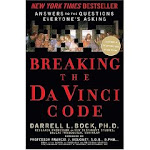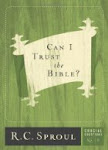 The issue of spiritual warfare has always seemed pretty straightforward to me; the enemies of God wage a continuous war against Him, turning His creatures against Him and challenging His power. We see one very vivid of the struggle relayed in Jude 9 where we read that the archangel Michael contended with Satan over the body of Moses! As far as we mortals are concerned, we sometimes witness a manifestation of this warfare in the form of demonic possession and influence.
The issue of spiritual warfare has always seemed pretty straightforward to me; the enemies of God wage a continuous war against Him, turning His creatures against Him and challenging His power. We see one very vivid of the struggle relayed in Jude 9 where we read that the archangel Michael contended with Satan over the body of Moses! As far as we mortals are concerned, we sometimes witness a manifestation of this warfare in the form of demonic possession and influence. Throughout my Christian walk, however, I have occasionally come across people who had an unhealthy (and very un-biblical) interest in what I can only term as the occult. Thinking that spiritual warfare consisted primarily of battling demonic possessions and manifestations, they go about seeking demons to rebuke, and every hardship, every coincidence, becomes a demonic attack. I hear of these people walking around their neighborhoods "claiming" a particular block for God and chastising the demonic forces they perceive as being all around them causing havoc...apparently forgetting that God is always in control and that this idea of claiming territory for God is foreign to Scripture.
Unfortunately, this foolish preoccupation detracts from the only true strategy we Christians are to employ; the proclaiming of the Gospel of our Lord and Savior Jesus Christ, calling people to repent and submit to the only true hope! This book, Power Encounters: Reclaiming Spiritual Warfare is about abandoning false notions we may harbor about spiritual warfare and embrace the biblical understanding of it. The book is not a denial of the reality of spiritual warfare, but a call to examine our practices and align them with the teachings of Scripture. I found the premise of his book clearly defined by these words found on pages 71-71:
"...the gospels narrate one long 'truth encounter' between Jesus and the moral evil that contends for or fills the human heart. The titanic moral combat occurs in the classic spiritual-warfare mode- Jesus' temptations in the desert and in the garden of Gethsemane- as the Son learned obedience through what He suffered. Throughout His ministry, Jesus rescued those in moral bondage to Satan by words of truth that claimed authority over temptation, sin, and unbelief. Inhabiting spirits are never in view. The real spiritual warfare engages moral, not situational, evil. The great physician may give medicine to bring down blood pressure- [demon possession] temporarily alleviating situational evil. But he challenges the patient to quit smoking, drinking, and gorging on junk food- moral evil. The latter is the decisive battlefield." (emphasis of last sentence, mine)
What Powlison is saying is that too many Christians are overly obsessed with this idea of casting out demons when we should be totally focused on spreading the Truth! But if you talk too some Christians, every issue involves demonic activity and we need to combat these demons. Is someone an alcoholic? Well then let's rebuke the demon of alcohol! Is someone addicted to pornography? The demon of lust is present! Can't focus on studying the Word? Obviously a demon is distracting you! What silliness! Listen, in the first two examples, the cause is our sin nature and the way to combat this is to be in the Word and to discipline ourselves to live holy lives; in the last example, hey maybe you should rest up or learn to focus! But this morbid preoccupation with demons "grafts Christian elements onto an underlying demonic and superstitious worldview, creating a hybrid perhaps acceptable to premodern minds. But the biblical Christian faith needs to stand alone; it should not be grafted onto any other worldview." (pg. 25)
Among the places where this mis-emphasis on spiritual warfare was popularized, Powlison lists Dallas Theological Seminary, which is sadly not surprising at all to me. Author Frank Peretti is, of course, one who's fiction writing has influenced many as well. In chapter 3 of the book, Powlison examines the writings of Peretti and compares them to that of Tolkien and Lewis, a chapter I found particularly enlightening not only because of this interesting discussion but because the main focus is on interacting with the scriptural text so that we reach the correct conclusion. How fiction writing and this concept relate to one another is something you'll have to read the book to find out! ;-)
Another fascinating chapter was the fourth one, where the author examines the OT, Job particularly, in order to help us understand the concept of spiritual warfare. On page 59 we find the following words: "We learn in the Old Testament that the way to deal with idolatry, astrology, mediumship, sexual immorality, anger- the besetting sins of the demonological jungle- is to repent or die. People need repentance, faith, truth, prayer and fidelity." We go on to read that "Scripture does not ignore evil, Satan, or demons. God fiercely warns against them all, commanding us to flee the abominations...[but] when the prophets speak to idolaters and those involved in the occult, they preach repentance and faith, not EMM. Naaman the Aramean was an idol worshipper who came to faith through a little girl and Elisha. Hosea simply called idolatrous Israel to turn back to God. The Ninevites- members of an occult culture- believed God and repented at the preaching of Jonah. In no case, even with gross and occult sins, was the problem defined as inhabiting spirits needing ekballistic ministry." (page 60)
I should briefly mention that EMM stands for "ekballistic form of ministry," a term Powlison has come up with to describe the practice of those who subscribe to spiritual warfare as consisting of casting out demons, praying over houses and possession for protection against demonic influence, etc... He came up with the term using the Greek word "ekballo" which means to "cast out."
Chapter 5 deals with sin and suffering and in it Powlison examines the ministry of Christ, especially as it relates to casting out demons. In it, he also takes a careful look at the difference between moral versus situational evil. In chapters 6 and 7 we read about the difference between the ministry of Jesus and what we are called to do; we also are confronted with a number of questions which Powlison answers. One very compelling argument found in chapter 7 is that nowhere are we commanded to practice EMM. Examining Mark 16:17-18, we are told how those who advocate EMM rely on this passage as one of their proof texts...but as the author points out, a more contextual explanation is that this refers specifically to the work of the apostles. He spends a number of paragraphs defending his position, and makes a very good case!
The book is a short and fascinating read (only 10 chapters); I encourage everyone to read it and contemplate what the author has written. More importantly, I exhort all readers to examine it critically and test it against the Scriptures. As the author says, everyone has a story to tell. Proponents of EMM always have their experiences to back up what they say!
"'But I experienced...' These are three of the hardest words to argue with in America today, for experience presents itself as indubitable authority...many of the 'demonic manifestations today' are produced by highly charged expectations. An atmosphere of intense expectation can produce almost anything...EMM could actually invoke demonic activity. 'Voices' in the mind are not uncommon..." (from pages 133-135)
The above quotes are a number of combined quotes in which the author discusses a variety of explanations for the perceived experiences of EMM advocates. As he maintains throughout the book, spiritual warfare must be reclaimed by Believers and correctly understood as it is taught in Scripture. Otherwise we dishonor the Truth by subscribing to superstitious nonsense. You may or may not disagree, but read the book to fully understand the message Powlison is communicating.





No comments:
Post a Comment